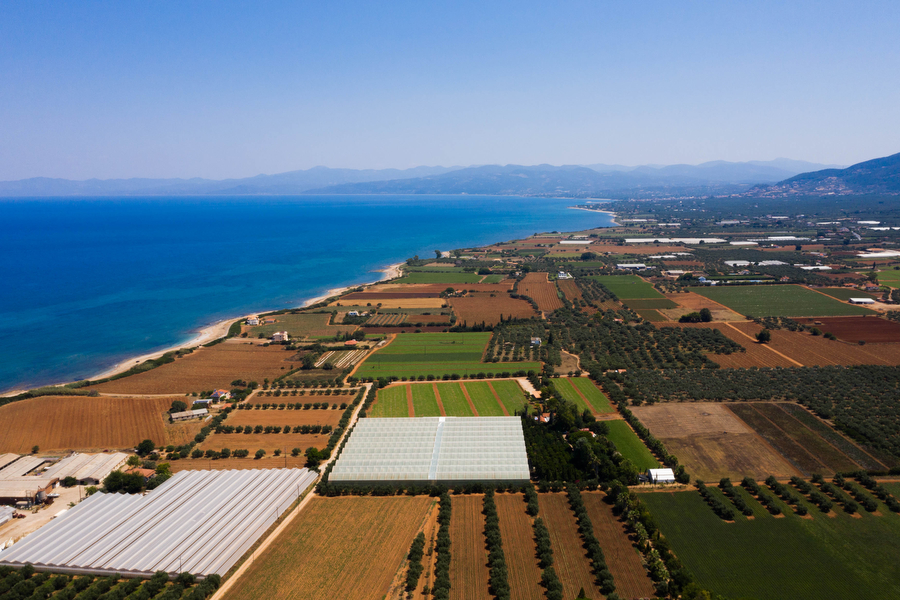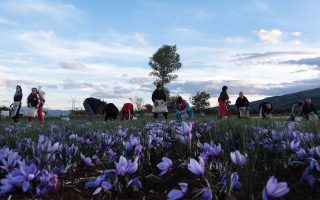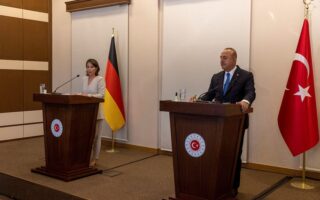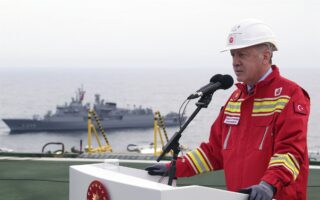From pipeline and pump to farm and fork

The tragic events of war in Ukraine (beyond the humanitarian catastrophe) revealed that the emperor was naked all along. In the midst of the climate emergency, when record temperatures and fires are pointing to what the true emergency is for the European Union and the world, our energy systems remained anchored to fossil fuels. Moreover, the convenient narrative that natural gas was the perfect bridge to a new energy system has turned into a mockery.
Not only did we foolishly attempt to buy more time rather than invest in change, but the decision increased Europe’s energy vulnerability particularly to Russia and also to fossil fuel exporters from around the world, including liquefied natural gas (LNG) from the United States. The media is now talking about how the path to net zero will become more tortuous, delayed, and even more politically controversial. Consumers all over Europe are outraged by soaring energy prices that not only burden them financially but threaten to cripple the economy.
In the months to come and as elections take place all around the EU, governments will continue to find ways to harness the price of energy in order to avoid being replaced by more populist, right- or left-leaning, political formations. To be fair, EU member-states, while scrambling to ensure uninterrupted access to energy, are also becoming more committed to the green transition. Still, today’s immediate concerns trump more medium-term planning when time is running out.
While the energy crisis has kept the focus on oil and gas, another critical sector that demands serious policy attention is the agricultural and overall food production sector. One reason is that we must finally accept that the soil is exhausted. Once fecund, land all across the world is now being taken out of production. Desertification is a major worry, not to speak of the impacts that energy prices have had on agricultural inputs, transportation costs, food prices, and the overall food industry. Moreover, agri-food systems are responsible for 30% of greenhouse gas emissions, equivalent to transportation, but until recently this has largely been deprioritized in mainstream public debate.
Occasionally, articles appear raising the alarm about food sustainability now and in the future, the adverse impacts of rising food prices on the more vulnerable, and fears that scarcity will lead to resource competition and political conflict.
Food is one of the most politicized topics. It is, after all, imperative for our existence, tied to culture, religion, history, our identity and sociability. Industrialized food production from farm to supermarket represents a giant economic sector and a significant part of each country’s GDP as well as its waste. Food supply chains, moreover, are global and have forged a network of interdependence that is currently under threat at a time when many countries have lost their resilience at home. The climate crisis and animal welfare have also given rise to activism and have generated informed citizens who seek to ensure that what reaches their plate is clean, fresh, humanely produced, and in season.
The convenient narrative that natural gas was the perfect bridge to a new energy system has turned into a mockery
For decades, the entire food industry has managed to keep under the radar. Nations have primarily focused on the energy transition, the modernization of the electric grid and the electrification of transport. The Russian invasion of Ukraine, however, has now turned attention to “foodways” in the context of the Anthropocene.
Greece offers a salient case study for this area of concern. It is both a small country whose Mediterranean dietary traditions seem tailored to the demands of a climate crisis era, but also an EU member-state that contributes and implements the instruments of the Common Agricultural Policy agreed upon in Brussels. CAP allocations for 2021-27 stand at 386.6 billion euros divided between two funds – the European Agricultural Guarantee Fund (EAGF) and the European Agricultural Fund for Rural Development (EAFRD) – and it has been decided that 40% of total CAP expenditure will be dedicated to climate action. Greece’s CAP allocation stands at €4.3 billion, which together with national contributions reaches €6 billion. Moreover, like other EU countries, Greece is committed to converting 25% of its agricultural output to organic production by 2030. The nation’s organic production at present represents only 10% of farming and husbandry. That means it has a long way to go.
Greece, however, has both an important opportunity and a role to play in what is quickly becoming a critical node in building resilience and producing safe, healthy and affordable food in light of the climate crisis. This article is the first in a series that will take a hard look at the realities, challenges and opportunities in light of the major agri-food production transformation that is currently under way. The series will examine how change is taking place in Greece, be it through EU funding schemes or the activism and dynamism of younger farmers.
The latter are working on scaling up regenerative farming techniques, building cooperative arrangements for consumer buy-in and the pooling of resources. The series will detail why boutique farming should not be considered niche and irrelevant to the transformation under way, but rather a demonstration of understanding that there cannot be a one-size-fits-all approach, especially in Greece. The culture, history, religion, and politics of food are also important considerations, together with the alarming levels of water and soil depletion and problems of harnessing food waste.
After all, who among us is indifferent to the fuel that sustains us, that protects or undermines our health, impacts our pocket and enriches our daily experience? Food security, moreover, is increasingly finding its way into the modern lexicon of policy priorities. This summer, for instance, during Crown Prince Mohammed bin Salman’s visit to Greece, Greek and Saudi private business groups signed agreements in which food and agricultural products were prominent. Food security is clearly now on the menu of global geopolitical realignments.
Sophia Kalantzakos is Global Distinguished Professor of Environmental Studies and Public Policy at New York University / NYU Abu Dhabi.





